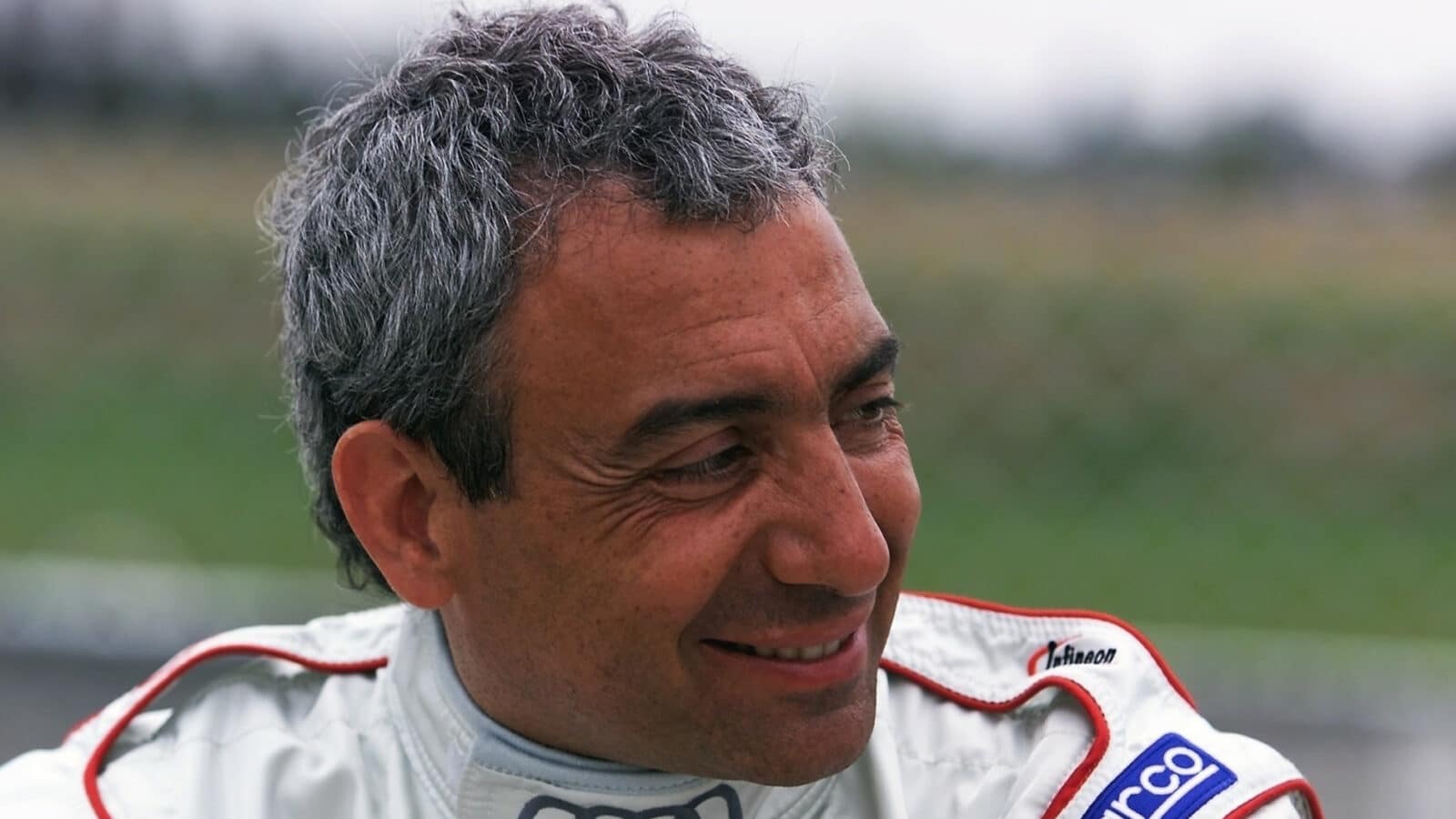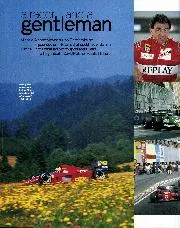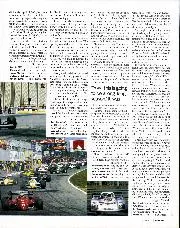Once Alboreto was out of Ferrari, it was obvious that in F1 terms his career could only go downhill, and in those circumstances many drivers would have called it a day, or raced in some other category, pride intact.
Although a proud man, Michele would never have bought into that. He still loved driving, and he really wasn’t that concerned about what people thought. In 1994, his final season in F1, for example, he drove for Minardi, and if some thought that sad, well, that was their problem.
For a while Alboreto tried a bit of this and a bit of that – he competed in the first season of the IRL, for example. But then came what seemed like a whole new career, driving for Audi at Le Mans and elsewhere.
At the Goodwood Festival of Speed he drove an Auto Union, and really entered into the spirit of the thing, right down to wearing ‘period’ overalls and cloth helmet. “Look at me,” he said. “Like Nuvolari!”
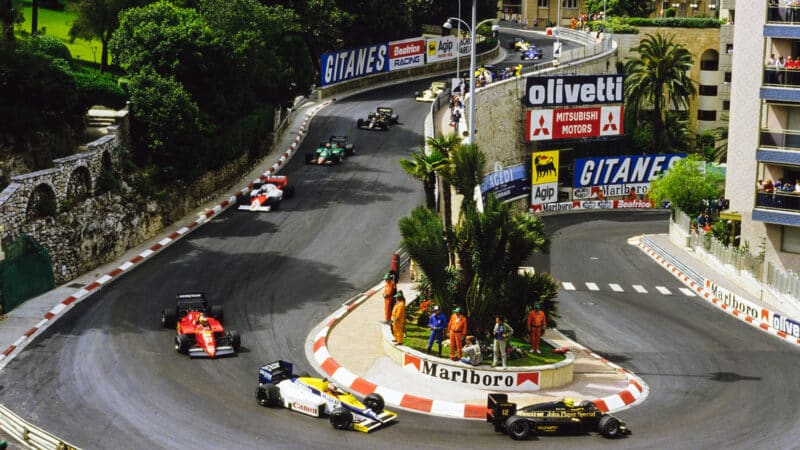
Alboreto behind Ayrton Senna and Nigel Mansell at the start of the 1985 Monaco Grand Prix: one of his greatest drives
LAT
One of the reasons I liked Michele so much was that he was the kind of racing driver who would know all about Nuvolari. He may have won five grands prix for Ferrari, but he was still a man who had heroes, and didn’t mind admitting it. In his young years he worshipped Ronnie Peterson, and adopted Peterson’s helmet colours of blue and yellow.
Alboreto also idolised Mario Andretti, whom he recognised as a kindred soul – a man who would race anything, anywhere, any time, and a man who retired, well into his 50s, only with the greatest reluctance.
“For me, Mario was the perfect racing driver,” he said. “I understand completely why he was the way he was. For some drivers, it’s F1 or nothing, but he wasn’t like that, and neither am I. In F1 I drove for Ferrari – and not long after I was driving for Minardi! I don’t look just for the glamour, or to be at the top. I like to win, of course, but I have a passion for driving – I drive for pleasure and success, not for money.”
And was the pleasure in driving as much as ever? “Unfortunately, yes!”
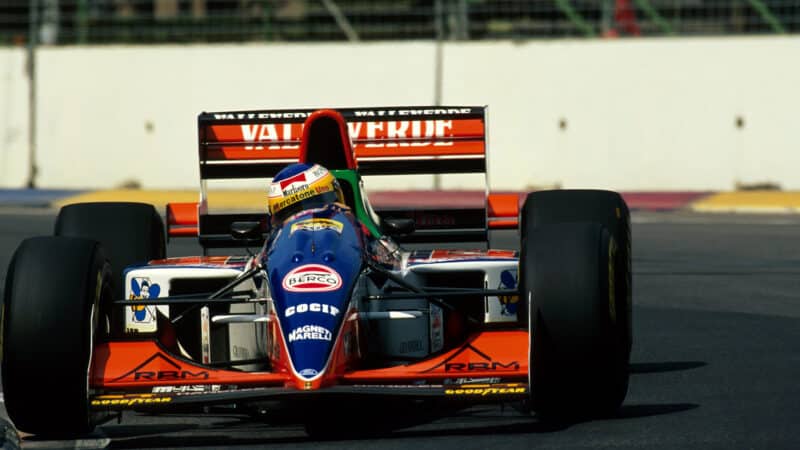
Alboreto’s made his final F1 bow for Minardi at Adelaide, 1994
Sutton Images
But were there gaps that once he would have gone through, and now backed off? “Unfortunately…no!” Alboreto was smiling as he answered, as if aware that, into his 40s, he should be a little more circumspect.
“I have less passion for women now than for cars! Old age, you see…”
He couldn’t help himself. Retirement was not even in his mind.
“That will come,” he said, “when I wake up in the morning and have to force myself to go to the track, when I feel I’m not as good as the other guys in the team. Under those circumstances, I wouldn’t want to be there.” Sadly, that day never came.
